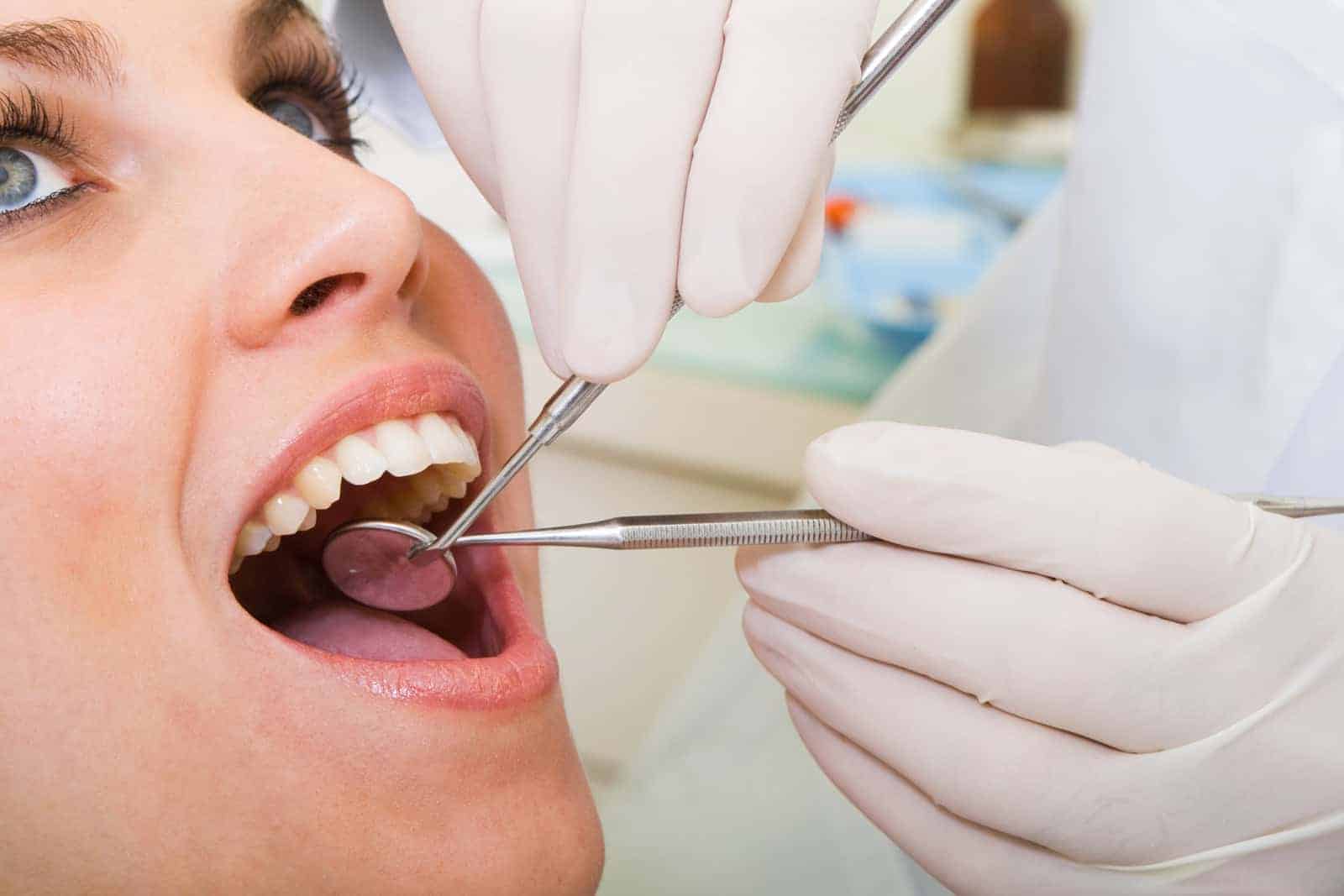Do you think that gum disease only poses a threat to your oral health? Think again. Gum disease affects your whole body and can increase your risk of cancer and heart disease.
What is Gum Disease?
Gum disease is also known as periodontal disease, which refers to an array of oral health problems. These can range from gingivitis to serious Periodontal disease.
Gingivitis is a milder form of gum disease where your gums become inflamed.
A serious periodontist occurs when your gums begin to pull away from your teeth.
Many individuals show early signs of gum disease without knowing it. These signs and symptoms can be confirmed during a visit to your dental office near Kissimmee. Symptoms include:
- Chronic bad breath
- Swollen gums
- Bleeding gums (when flossing)
- Sensitive teeth
- Painful spots on your gums (when chewing)
Did you know, that there is a high chance you may currently have some form of gum disease? Statistics show the following:
- More than 90% of adults over age 30 have active gum disease.
- 65% of teenagers that are 15 years old have active gum disease.
How Does Gum Disease Affect Your Body?
Gum disease is detrimental to your oral health. It is the leading cause of tooth loss and many oral health problems. What is less well-known, is that gum disease affects the entirety of your body.
Your mouth is an integral part of your immune system. It is closely connected to multiple parts of your body. If your mouth has a bacterial imbalance or gum disease, it can create immune problems and inflammation throughout other parts of your body.
A great deal of research has gone into determining the risks of gum disease on the body. You can ask your Kissimmee dentist about these risk factors during a routine or scheduled appointment. Some of these risks include:
- Cancer in various forms such as oral, breast, pancreatic, esophageal, etc.
- Fatal coronary heart disease
- Stroke
- Pneumonia aspiration
- Arthritis
- Diabetes
- Pregnancy complications, such as low birth weight in babies
Why Gum Disease Goes Beyond Your Mouth
Gum disease is an active bacterial infection, these bacteria can travel through your bloodstream. Since the bacteria is mobile it can colonize areas of your body.
The known risks of this include:
- The damage is caused by the bacteria in your mouth.
- How your body responds to the persistent bacterial attack and the resulting inflammation.
How Your Body Responds to Bacterial Infection in Your Mouth
First, your immune system identifies the gum disease and tries to defeat the infection.
It begins by increasing inflammation in the infection area. This increases blood flow and the number of white blood cells to fight off the infection.
Clear signs of active bacterial infection in your mouth are:
- Swollen gums
- Painful gums
- Bleeding gums (when you brush your teeth)
Chronic Inflammation in Your Body
Essentially, gum disease is a gateway disease. When there is a chronic infection in your mouth it results in overall chronic inflammation. This wide chronic inflammation contributes to other diseases such as arthritis, diabetes, heart disease, and cancer. Our Kissimmee dentist, Dr. Altman, Dental Specializes in periodontics and can help determine if you have periodontal disease and determine the best treatment process.
Improve your Body Through Your Oral Health
Improving your oral health is a two-part approach:
-
Improve your oral health in your mouth: Remove harmful bacteria that cause gum disease. This will reduce the bacterial load on the body.
-
Improve your immunological health: Address the health of your body on a cellular level.
The first part of this approach focuses on improving your oral health which in turn, will improve your overall wellness. This can be done by practicing a good oral hygiene routine that includes, brushing, flossing, and other methods. If you have additional questions or would like to receive a full oral exam, contact our Kissimmee dental office and book an appointment today.
